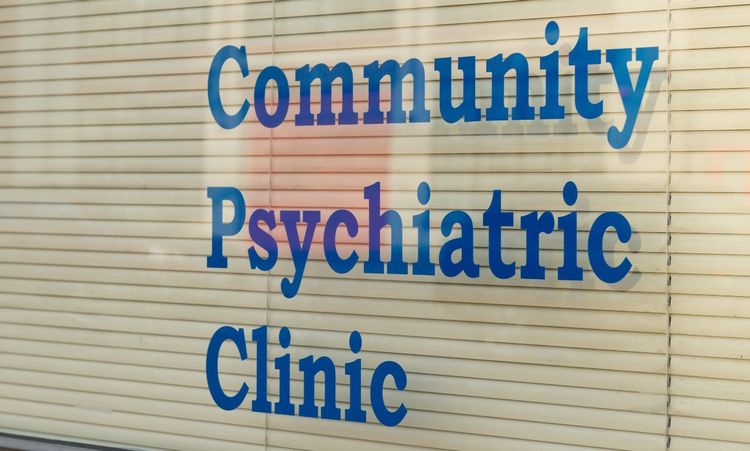Grief hits us all differently. I've seen this firsthand with clients and in my personal life. The pain can feel overwhelming and isolating at times. Many people struggle to understand their emotions after losing someone important. Grief counseling offers valuable support during these challenging periods. A professional grief therapist brings expertise to help you process complex feelings. They create a safe environment where you can express yourself without judgment. This article explores essential questions to ask a grief therapist. We'll also discuss what grief counseling involves and how to prepare for your sessions. I aim to help you find support for your unique grief journey.
What Is Grief Counseling?

Grief counseling is a specialized form of therapy. It focuses on helping people cope with loss and bereavement. The process addresses emotional, cognitive, physical, and behavioral responses to grief. Counselors use various therapeutic approaches to facilitate healing and adjustment. They recognize that grief isn't linear and doesn't follow a predictable timeline.
I once worked with a client who lost her husband suddenly. She couldn't understand why her grief came in waves. Her counselor helped her see these fluctuations as standard parts of healing. Grief counseling acknowledges different types of loss beyond death. This includes divorce, job loss, serious illness, or significant life transitions. The therapy adapts to individual needs and cultural backgrounds. Sessions may occur one-on-one, in groups, or with family members together. The ultimate goal is to help you integrate loss into your life story.
What Happens in a Grief Counseling Session?
Initial Assessment and Goal Setting
During the initial session, the counselor obtains information regarding your loss. The therapist will inquire about your connection with the deceased individual. Your therapist will need to learn about the people who support you and the methods you use to cope with your grief. A therapist will assist you in developing particular objectives that guide your counseling process. The collaborative approach used in this initial stage creates the base structure that future sessions will follow.
Emotional Expression and Processing
Through grief counseling, you gain opportunities to share difficult emotions. According to your therapist, processing these feelings requires different therapeutic methods. The therapy will use other methods like verbal communication, written expression, artistic activities, and mental visualization exercises. A counselor assists you in understanding that your grief reactions are typical and confirms your grieving experience. The counselor will show you how to acknowledge emotional pain while staying present to it without any form of self-criticism.
Coping Strategies and Skill Building
The sessions provide you with practical tools to handle your grief symptoms. Your therapist will demonstrate different relaxation skills that minimize anxiety symptoms. Journaling prompts, which the counselor recommends, serve as a tool for processing complex thoughts. Your ability to handle challenging social interactions increases when you play such roles in advance for real-life situations. Your counselor selects strategies that match your personal needs with your unique circumstances.
Questions for a Grief Therapist
About Their Qualifications and Approach

When selecting a grief therapist, ask about their professional training. Inquire about their specific experience working with grief and bereavement. Question them about their therapeutic approach to grief counseling. Ask how they measure progress in grief therapy sessions. Find out if they specialize in your particular type of loss.
About the Therapy Process
Before starting therapy, understand what the initial assessment will involve. Ask about the typical length and frequency of sessions. Question how they structure their grief counseling approach. Inquire about any homework or between-session activities they might assign. Find out how they handle crises related to grief.
About Your Specific Grief Experience
Don't hesitate to ask if your grief reactions are normal. Question how long intense grief symptoms typically last. Ask for strategies to manage particularly difficult emotions or thoughts. Inquire about how grief might affect your relationships with others. Discuss how to handle grief triggers and anniversary reactions effectively.
Benefits of Grief Counseling
A Safe and Non-Judgmental Space
Grief counseling offers a protected environment for emotional expression. You can speak honestly without fear of burdening others. The therapist provides validation without minimizing your unique experience. They normalize grief reactions that might seem strange or frightening. This acceptance creates freedom to process complex emotions thoroughly. Many clients find that this space allows for healing that is impossible elsewhere.
Personalized Guidance and Support
Grief therapy is tailored to your specific needs and circumstances. Your counselor adapts techniques to match your personality and preferences. They help identify unhelpful thought patterns that intensify suffering. The therapist suggests specific coping strategies for your particular challenges. This individualized approach acknowledges the uniqueness of each grief journey. Support extends beyond sessions through recommended resources and tools.
Managing Grief-Related Anxiety and Depression
Grief often triggers or worsens anxiety and depression symptoms. Counseling helps distinguish between normal grief and clinical depression. Therapists teach specific techniques to manage overwhelming anxiety. They help establish healthy routines that support emotional stability. The therapy addresses sleep disturbances common during intense grief. Counselors monitor for concerning symptoms that might require additional intervention.
How to Prepare for Grief Counseling

Preparing for grief counseling helps maximize session benefits. Consider what you hope to achieve through therapy beforehand. Reflect on aspects of grief that feel most challenging currently. Write down questions or concerns to discuss with your therapist. Gather basic information about your loss to share during assessment.
Bring comfort items if they help you feel safer expressing emotions. Wear comfortable clothing that allows you to relax during sessions. Plan downtime after sessions since emotional work can be tiring. Arrange transportation so you don't need to drive if emotionally overwhelmed. Remember that the first session focuses mainly on information gathering.
Set realistic expectations about the grief counseling timeline. Understand that healing happens gradually through consistent work. Be willing to try suggested techniques even if they seem unusual. Prepare to experience emotional intensity during and between sessions. Know that progress often involves temporary increases in pain levels.
Conclusion
Grief counseling provides essential support during life's most difficult transitions. The right therapist creates space for authentic healing and growth. Asking thoughtful questions helps find the best match for your needs. Remember that seeking help demonstrates courage, not weakness. The grief journey looks different for everyone. Professional guidance can illuminate the path forward when everything seems dark. Consider reaching out to a grief counselor if you're struggling. Their expertise might provide precisely what you need to move through pain. The questions outlined here offer a starting point for finding appropriate support. Your grief deserves attention, understanding, and compassionate care.
Also Read: What Do You Do During Ketamine Therapy?




